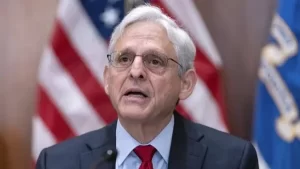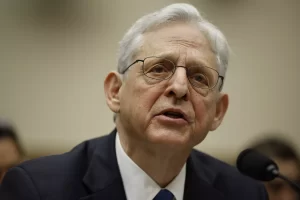The Justice Department informed House Speaker Mike Johnson on Friday that Attorney General Merrick Garland would not face prosecution for contempt of Congress, despite the House voting this week. The Department argued that Garland’s refusal to comply with a subpoena “did not amount to a criminal offense.”
The issue revolves around a subpoena for the recording of President Joe Biden’s interview with special counsel Robert Hur regarding classified documents found in Biden’s home. Hur chose not to pursue federal charges against Biden, and the president invoked executive privilege to keep the interview recording confidential.
The DOJ provided the House with a transcript of Biden’s interview, and Hur testified about his decision. However, Republican lawmakers insisted on hearing Biden’s responses as part of their investigation into his suitability as president.
On Friday, Johnson declared that the House disagreed with the DOJ’s decision and intended to send its contempt report to the U.S. Attorney for the District of Columbia for possible charges against Garland. Additionally, the House planned to pursue enforcement of the subpoena in federal courts.
“This is another example of the Biden Administration’s dual justice system,” Johnson remarked.
In a 216-207 vote on Wednesday, the House decided to hold Garland in contempt and recommended that charges be brought against him by the DOJ.
Assistant Attorney General Carlos Felipe Uriarte explained the DOJ’s longstanding policy that refusal to comply with congressional subpoenas after executive privilege has been asserted by the president is not deemed criminal. Uriarte cited previous instances where administration officials defied subpoenas without prosecution:
- White House Chief of Staff Joshua Bolten and White House Counsel Harriett Miers during President George W. Bush’s administration regarding the dismissal of U.S. attorneys.
- Attorney General Eric Holder during President Barack Obama’s administration concerning the Fast and Furious gun trafficking investigation.
- Attorney General Bill Barr during President Donald Trump’s administration regarding a citizenship question in the 2020 Census.
Uriarte emphasized that, in keeping with this policy, Garland’s responses to the committees’ subpoenas were not considered criminal, and therefore, the DOJ would not present the contempt citation to a grand jury or pursue any prosecution against the Attorney General.






